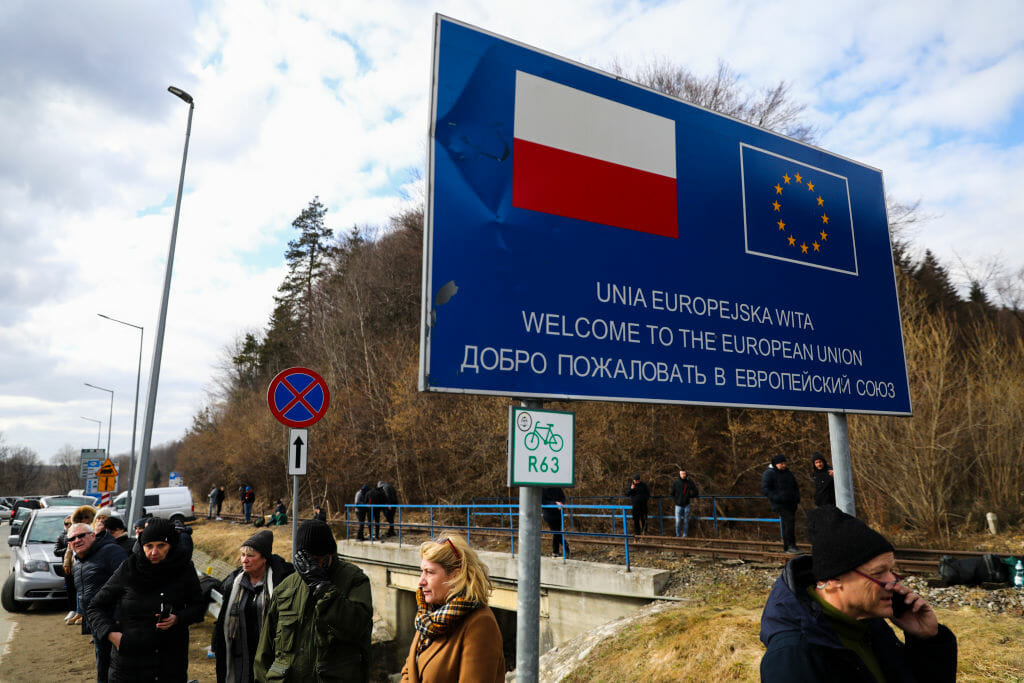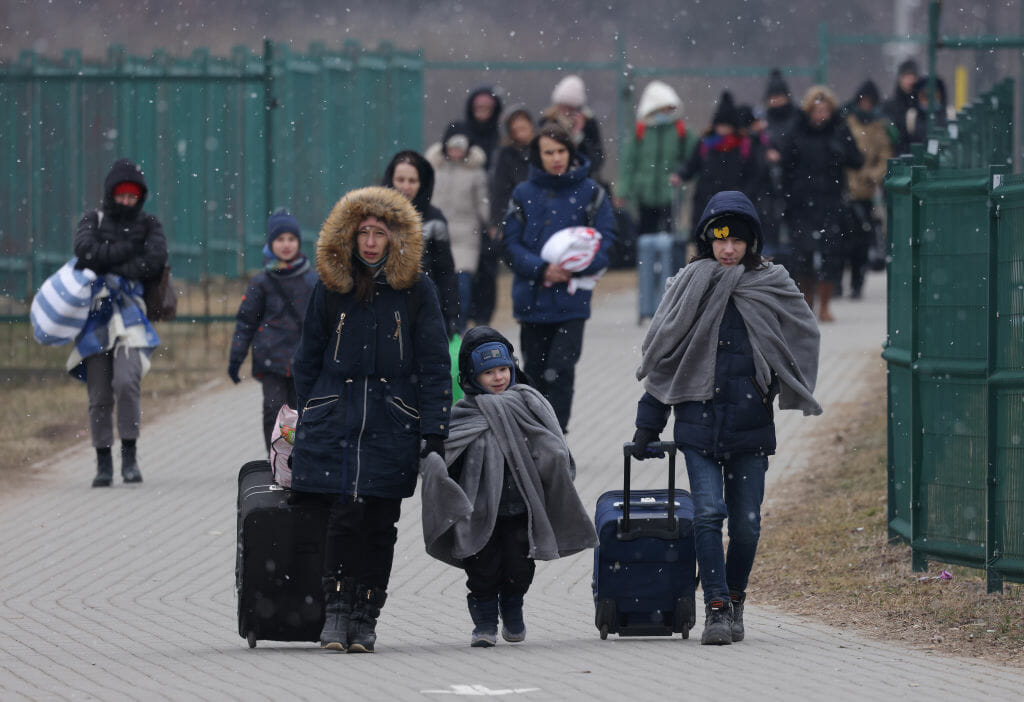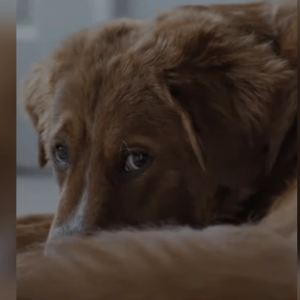Our hearts continue to be with the people of Ukraine amidst the ongoing invasion by Russian forces. Out of the chaos there have been many stories, some sad, some inspiring, of citizens’ resistance and bravery.
One woman who recently fled Ukraine shared a heartbreaking first-person account of how she had to leave so much of her life behind — but refused to leave behind her elderly pet dog, even if it meant carrying him across the border.
A 35-year-old Ukrainian woman named Alisa shared her account in The Guardian, describing her perilous journey out of the country. A programmer for a German company, she had a chance to leave war-torn Kyiv for Poland, but making it to the border wasn’t easy.
People are waiting for relatives and friends whoa are crossing Ukrainian-Polish border due to Russian military attack on Ukraine. Kroscienko, Poland on February 27, 2022. Russian invasion of Ukraine causes a mass exodus of refugees to Poland. (Photo by Beata Zawrzel/NurPhoto via Getty Images)
She recalls driving 16 hours from the capital to a village, packed in a single car with her mom, sister, their two husbands, four children and an elderly German shepherd.
Still in danger, they left the village to get to the border, but there were so many cars they had to walk the rest of the 10 miles on foot, in cold weather.
But the last leg of the journey was especially difficult for the elderly dog: “My dog is 12 and a half and she struggled to walk and fell down every kilometer or so and couldn’t stand up again,” Alisa wrote in The Guardian.
“I stopped cars and asked for help but everyone refused; they advised us to leave the dogs.”

People are waiting for relatives and friends whoa are crossing Ukrainian-Polish border due to Russian military attack on Ukraine. Kroscienko, Poland on February 27, 2022. Russian invasion of Ukraine causes a mass exodus of refugees to Poland. (Photo by Beata Zawrzel/NurPhoto via Getty Images)
She recalls driving 16 hours from the capital to a village, packed in a single car with her mom, sister, their two husbands, four children and an elderly German shepherd.
Still in danger, they left the village to get to the border, but there were so many cars they had to walk the rest of the 10 miles on foot, in cold weather.
But the last leg of the journey was especially difficult for the elderly dog: “My dog is 12 and a half and she struggled to walk and fell down every kilometer or so and couldn’t stand up again,” Alisa wrote in The Guardian.
“I stopped cars and asked for help but everyone refused; they advised us to leave the dogs.”

MEDYKA, POLAND – MARCH 07: People, mostly women and children, arrive from war-torn Ukraine on a freezing day at the Medyka border crossing on March 07, 2022 in Medyka, Poland. Over one million people have arrived from Ukraine since the Russian invasion of February 24, and while many are now living with relatives who live and workin Poland, others are journeying onward to other countries in Europe. (Photo by Sean Gallup/Getty Images)
But she refused to give up. Her dog was family, and she wasn’t going to leave her behind. Alisa recently lost her father and had to flee her home, she wasn’t going to give up on her dog
“Our dogs are part of our family,” she wrote. “My dog has experienced all the happy and sad moments with us. Mom’s dog is all she has left of her former life.”
So, they brought the dogs with them on their arduous journey — even if it meant giving them a lift. A photo shows Alisa’s husband carrying the German shepherd over his shoulder:
This Ukrainian woman carried her old dog for 17km to cross the border with her. 🇺🇦 pic.twitter.com/wCthUAjqyw
— Visegrád 24 (@visegrad24) March 10, 2022
The family made it to the border, and was put in a crowded tent for seven hours. “We were all in there, dogs and five children, all with wet feet,” Alisa wrote. “It was hard physically and psychologically.”
And even though they had all made it there safely, Alisa got heartbreaking news: her husband would not be allowed to cross the border, due to his age and the mobilization order. Her husband went back to the village, and she entered Poland with the others.
As is the case with so many Ukrainians, Alisa’s future is filled with uncertainty. “My plan is just, I don’t know. I want my husband here. For now, what I will do with my kids, is decide where I want to stay: here in Poland, or go to Germany, like all of my colleagues,” she wrote in The Guardian.
While the situation is still ongoing, we can find inspiration in this family’s resilience — and their refusal to leave a pet behind.
Please share this story with the world, and keep this family in your thoughts and prayers 🇺🇦





